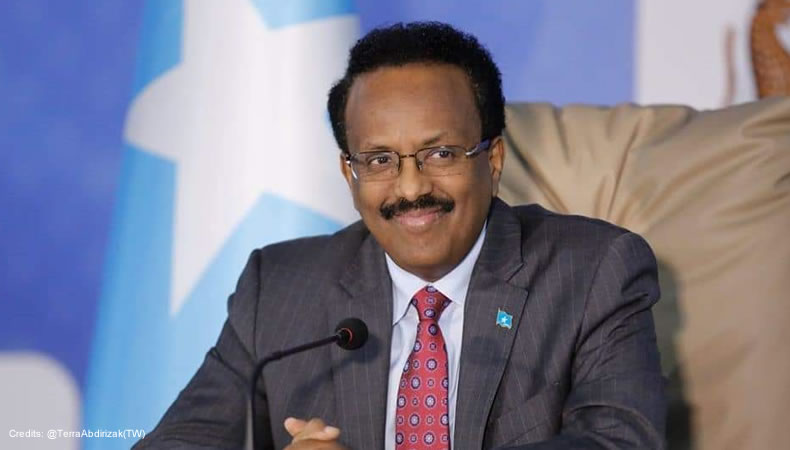Somalia: Demonstrations against Farmajo’s despotic rule postponed after government apologises for Feb 19 crackdown

Friday’s demonstrations, planned against the incumbent President Mohamed Abdullahi Farmajo’s crackdown on protestors on 19 February, got postponed after the government authorities apologised for the inhumane. Earlier this month, the situation grew tense in Somalia, triggering constitutional crises when the outgoing President refused to step down despite the expiry of his tenure on February7.
The country’s political crisis transformed into human rights crisis after Farmajo started using security forces to crack down on peaceful demonstrations all cross the country, objecting to the extension of his rule. The recent episode of gruesome bloodbath, sparked massive outrage, as hundreds of innocent demonstrators were shot at by Somalian forces in Mogadishu, on February 19. Besides, in order to silence the dissenting opposition leaders, the government forces also attacked the hotel in Mogadishu where they were staying last week.
In order to influence global opinion, the government labelled the clash between supporters of opposition leaders and Somalian forces as an attack by “armed militia”, which the authorities claimed was repulsed by the army. Observes accused the outgoing Somali president of using force to ‘stage coup’ in the nation, in order to use it as an excuse to remain in power.
“The person who created the chaos should now avoid using his power,” said Dahir Geele, a member of the coalition of opposition candidates in a statement released on Wednesday. The opposition group had earlier planned to carry out a rally at Unknown Soldier’s monument this Friday, in order to press their demand for cessation of Farmajo‘s despotic rule. The government’s apology ahead of the Friday’s protests exhibited victory of will of the demonstrators, over Farmajo’s iron fist rule.
Read more : Farmajo uses Somalian security crisis as an excuse to defy constitution and remain in power
The key cause of ongoing protest had been Somali government’s failure to hold elections by the 8 February deadline. With the end of Farmajo’s tenure, the opposition group proposed for the creation of a transitional authority, as they refused to recognise his administration.The group also suggested creation of national council, to include lawmakers, opposition leaders and civil society workers in it, to govern the country prior to electing a new president.
Earlier this week, James Swan, the UN envoy for Somalia, called for an agreement over holding elections “as soon as possible” after last week’s attack on the protestors. In a quarterly video conference Swan urged “all of Somalia’s political leaders to pull back from confrontation and avoid risky winner-take-all tactics.” He added, “Instead, this is a time to pursue dialogue and compromise to reach an inclusive and credible political agreement to hold elections as soon as possible based on the 17 September model.”
However, Somalia’s electoral impasse continues as Farmajo remained resolute and denied succumbing to any pressure demanding the change of regime.Government spokesman Mohamed Ibrahim Moalimuu also warned the protesters against holding any demonstrations, citing Covid-19 restrictions as binding clause.“We won’t allow any rally, be it one organised by the government or the opposition, to take place in Mogadishu because of the surge of coronavirus and security threats,” Somalia Security Minister Hassan Hundubey said.




